-
•
•
11 responses
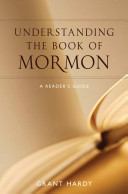
Every semester, one of my principal goals in my tax classes is to get my students to engage with the Internal Revenue Code. And it’s harder than you might think: often they don’t read the Code itself, focusing instead on the explanations in their casebook.[fn1] And their aversion to reading the Code is completely understandable: unlike court decisions, the mainstay of law school, there is no narrative flow, no character, no imagery, nothing that we traditionally latch onto in order to immerse ourselves in a text. And frankly, using the casebook isn’t a bad short-term decision. The casebook explains what… Read More
-
•
•
13 responses
My friend and co-blogger Rosalynde presents a fascinating argument about Book of Mormon historicity in her recent review of Grant Hardy’s Understanding the Book of Mormon. Based on my experience with various other ancient texts, I respectfully disagree. Rosalynde suggests that Grant Hardy’s literary analysis of the Book of Mormon is harder to separate from a discussion of its historical origins than he thinks. He shows us the complexity, coherence, and development of its various narrative voices, and in the process shows how much their distinctive, personal perspectives and interests shape the text. Hardy invites readers of the Book of… Read More
-
•
•
11 responses
This is the fourth in a series of reviews of Grant Hardy’s Understanding the Book of Mormon: A Reader’s Guide (OUP, 2010) that we are posting this week at Times and Seasons. It says something about the book that there is still a lot to talk about. Read More
-
•
•
14 responses
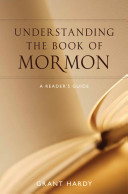
Compare this classic statement of Richard Bushman, meant to encapsulate his own efforts as part of the New Mormon History movement: As more and more historians work to situate Mormonism in American history, Mormons like me want to join the discussion. We will write better if we are less defensive, more open to criticism, more exploratory and venturous, but even with our inhibitions and parochialisms, we should come to the table with our Mormonism intact.[1] with this statement from Grant Hardy: As the Church of Jesus Christ of Latter-day Saints becomes a world religion, the need for our traditional siege-mentality… Read More
-
•
•
7 responses
Participants in Richard Bushman’s and Terryl Givens’ Summer Seminar on the Gold Plates will be presenting papers tomorrow, Thursday, August 18th, at BYU. Here are the details: The Mormon Scholars Foundation Annual Summer Symposium on Mormon Culture The Cultural History of the Gold Plates Thursday, August 18, 2011 B037 Joseph F. Smith Building Brigham Young University, Provo, UT Morning Session 9:00 AM Welcome by Richard Bushman, Invocation TBA 9:15 AM “Worlds of Discourse, Plates of Gold: Joseph Smith’s Plates as Cultural Catalysts”—Stephen Taysom 9:45 AM “Guard the Gold: Didactic Fiction and the Mainstreaming of Moroni”—Ben Bascom 10:15 AM “Fictionalizing Faith: Popular Polemics and the… Read More
-
•
•
13 responses
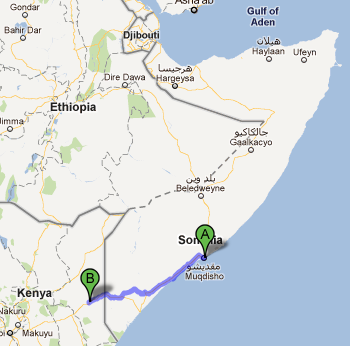
Ghedi, 13 years old, is trying to escape Mogadishu, the capital city of Somalia. Now, before I start Ghedi’s story, let’s get ourselves situated. Here’s Mogadishu relative to the rest of Africa: You can see that it’s a coastal city, on the southern end of the Horn of Africa (that’s the pokey piece of Africa jutting out right below the Saudi Arabia.) Let’s zoom in on that a little bit closer: Note that Kenya is just southwest of Somalia. That’s important because Ghedi, the hero of our story, is trying to get out of Somalia and into Kenya. Specifically, he’s… Read More
-
•
•
27 responses
Criticisms of the Book of Mormon generally fall into one of two categories: objections to its historical claims on the one hand, and on the other critiques of its literary style. The two prongs are often combined in a single attack, for instance in the suggestion that the awkward style of the book reflects the naïve voice of an unlettered youngster. For their part, the book’s defenders also tend to elide the two categories, arguing that passages of inelegant prose are better understood as latent Hebraisms laboring under English syntax. Most of the time, of course, devout readers of the… Read More
-
•
•
22 responses
In On the Road with Joseph Smith: An Author’s Diary, we get a fascinating peek into Richard Bushman’s psyche during the time immediately after the publication of his monumental work, Joseph Smith: Rough Stone Rolling. Read More
-
•
•
3rd Brazilian Mormon Studies Conference Annual Conference of the Associação Brasileira de Estudos Mórmons (Brazilian Mormon Studies Association –ABEM) January 28, 2012 São Paulo, Brazil Call for papers “Mormonism and its relationship with other denominations” The Mormon religious tradition is based on the concept of an apostasy by all Christian denominations and their consequent lack of divine authority, hence the claim to be the “only true and living church.” In contrast, this same tradition emphasizes its members’ broader religious freedom, and even their need, to recognize and seek the whole truth from any source, including other religious traditions. This dichotomy… Read More
-
•
•
6 responses
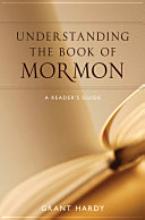
Times and Seasons is excited this week to present to you a roundtable series review of Grant Hardy’s recent book Understanding the Book of Mormon: A Reader’s Guide (Oxford 2010). The upcoming posts will not only acquaint you with book itself, but also provide our opinionated responses, and of course, allow you all to join in the fray. Best of all, Brother Hardy has agreed to participate in a 12 Questions Interview that will cap off the whole affair. To begin, for those of you not already familiar, we want to introduce the author himself. Dr. Grant Hardy is currently… Read More
-
•
•
14 responses

Last week I took my family to the Utah Shakespearean Festival for our annual visit with friends. For those who don’t know, the performances and presentation at the festival are first rate (we frequently go to the theater at home in New York City and we have often found the plays at the festival better than those both on and off Broadway). But what is even more impressive to me is that the festival exists because of the vision of a returned missionary fifty years ago. Read More
-
•
•
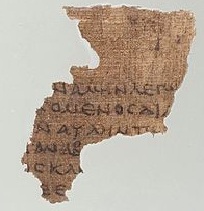
Some background on 1 Corinthians (in addition to that given in the Bible Dictionary): The church at Corinth was founded by Paul in 51 A.D, and this letter was probably written in the early spring of 57. Corinth had a reputation for debauchery in the ancient world, and that in a world that was tolerant of sexual promiscuity of all kinds. Paul and Sosthenes (the two of them are the senders of this letter—see verse 1) are responding to two things: reports from Chloe about what is happening in Corinth (chapters 1-6) and a letter that the Corinthian members have… Read More
-
•
•
14 responses
I know a lot of people swear by it, but I’ve never found “belief” to be a reliable way of describing what is (or isn’t) happening when I plant myself in a pew. Read More
-
•
•
23 responses
It’s ward conference for us today. Ward conference is kind of a let-down for me. It doesn’t offer the short church session that we get from stake conference, and I can’t watch it on my laptop while eating not-Cap’n-Crunch in my pajamas. It’s pretty much just business-as-usual. But it’s not like the two-hour session of stake conference is really such a break when you’ve got to keep small kids quiet for the duration. Really, I’d rather have three hours of church with someone else watching my kids than to try and keep them quiet and attentive for two hours of… Read More
-
•
•
6 responses
Times & Seasons is happy to announce that Sam Brunson has agreed to join our happy blogging family as a permanent contributor. For those unfamiliar with Sam, the introductory post on him can be found here and his posts to-date are available here. Read More
-
•
•
76 responses
There’s a sidebar called “The Poetic Language of the King James Bible” in the August 2011 Ensign. Read More
-
•
•
107 responses
In the comments to Dave’s post discussing Joanna Brooks’s discussion of myths about Mormonism, the conversation is getting hung up on whether her citation of 14.1 million members is disingenuous[fn1] or not. That discussion, I believe, misses the point.[fn2] Why? Baseline. First, because 14.1 million is as good a number as any. Sure, in a real discussion of how many Mormons there are, you need to do a whole lot more work to define what you mean by “Mormon.”[fn3] There are some areas that are clear: for example, it’s hard to argue that a person who has been baptize in… Read More
-
•
•
77 responses
If you haven’t read “Five Myths About Mormonism,” a piece at the Washington Post by Joanna Brooks, you should. There are plenty of Mormon myths out there, but few people are going to visit the LDS Newsroom or the Mormon Defense League to upgrade their ideas about Mormons and what we believe. We need more articles like this in the mainstream media to get the message out. Read More
-
•
•
16 responses
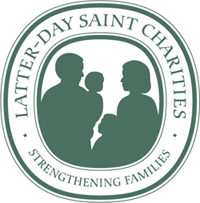
Earlier this year I decided I wanted to put together a list of charities and other “good causes” that were either founded or run by Mormons. Of course, it shouldn’t matter at all the religious background of a charity’s founder or management. If they are doing good work, then they deserve support regardless. But in reality affiliation matters to many people. Read More
-
•
•
25 responses

The program for the annual convention of the Modern Language Association regularly includes the following request: The Committee on Disability Issues in the Profession reminds attendees that refraining from using perfume, cologne, and other scented products will help ensure the comfort of everyone at the convention. Read More
-
•
•
40 responses
(Note: this is part 1.5 of series that looks to be running at least 4 posts long at this point. Part 1 is here.) In the comments, Naismith pointed out that the $400/month is not the sole expense potential missionaries face. In order to go on a mission, a potential missionary needs a dental exam (including, at least in my case, getting his or her wisdom teeth removed) and a medical exam. There are also clothing costs—for my mission (IIRC), I needed 10 short-sleeved white shirts, 2 long-sleeved white shirts, a bunch of ties, two suits, a couple pairs of… Read More
-
•
•
32 responses
In the last post on the Handbook, I noted that Church leadership seems to me to have emphasized collaborative leadership in recent decades. For the issues that face most Church members on a weekly basis, the Ward Council is where that collaborative leadership actually happens. Read More
-
•
•
41 responses
It always helps to know who wrote what you are reading, and Bible books are no exception. The four gospels, in particular, present interesting questions of how the narratives were composed and who did the composing. Read More
-
•
•
44 responses
I just saw Stephen M (Ethesis)’s post on complaints about EFY and I liked his list of reasons people complain (particularly about church stuff). For those of you who aren’t clicking the link to his article, here’s the quick summary of his list: Legitimate — Complaining about a demonstrable problem with a demonstrable solution. Compulsive mental illness — What it sounds like. Compulsive snarkers — “People who are just constant nitpickers…” Thematic — “People who have adopted a cause, and thereafter have a stream of advice and complaints that circle around that as a theme…” People in pain — “Some… Read More
-
•
•
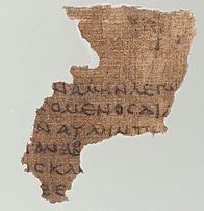
The readings from Acts tell of Paul’s third missionary journey, to Galatia, Ephesus, Macedonia, and Greece. (See the maps in your LDS Bible.) Acts 20:28-32 Verse 28: To whom is Paul preaching in these verses? (See verse 17 and footnote “b” for verse 28.) The Greek word translated “overseer” is episkopos, the root word for the English word “episcopal.” It is often translated “bishop,” but “overseer” is a good (and very literal) translation because it shows what the episkopos does: he watches over others to see that they do their jobs properly. It may or may not refer to what… Read More
-
•
•
33 responses
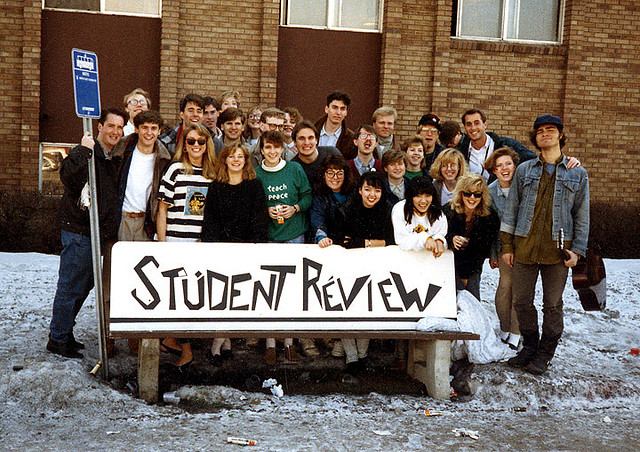
The announcement this week that a group of BYU students is starting a new Student Review raised a lot of memories for me. Twenty-five years ago I was one of the group “tired of the universe” which was doing the same thing—starting an off-campus student newspaper for BYU students. Read More
-
•
•
65 responses
(Note: this is part 1 of an at-least-3 part series.) During the 19th century, missionaries often travelled without purse or scrip, relying, instead, on the hospitality of the very people they were trying to teach and convert. And the practice apparently continued, at least in part, until the mid-20th century: until as recently as 1952, missionaries would spend at least some of their time traveling and teaching without purse or scrip. But, as missionary work became urbanized, and as the world became what it is today, missionaries (with the help of their families and their congregations) began supporting themselves, rather… Read More
-
•
•
60 responses
By the time I was, say, 15, my hair was long. Not long-for-a-good-Mormon-boy, but legitimately long. (Also, I listened to heavy metal and grunge–there may have been a causal relationship there, but I’m not sure which way it ran.) Both my music and my hair probably violated the Church’s rhetorical standards.[fn1] That is, per statements in various Church publications and general Mormon cultural rules, both were probably inappropriate. But, even though I braced myself for the inevitable condemnation, it never came. Seriously. I participated in the administration of the sacrament throughout my long-haired days. No young men’s leader, teacher, bishop, or… Read More
-
•
•
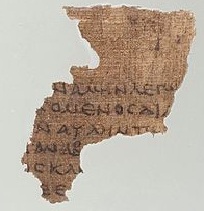
Almost all of our lessons cover an incredible amount of material. However, this lesson covers even more material than usual: 3 and one-half chapters of Acts, 5 chapters of 1 Thessalonians, and 3 chapters of 2 Thessalonians. To try to make the material more manageable, I will focus on 1 Thessalonians 4-5. As you will see, however, even that has produced a long set of study materials. 1Thessalonians is the oldest New Testament document we have, written before any of the Gospels or other letters. Thessalonica was a Greek city, the capital of the Roman province of Macedonia. You can… Read More
-
•
•
52 responses
I’ve always felt quite ambivalent about Pioneer Day, although in recent years I’ve spent it in Utah rather frequently and am descended from the gentleman who proclaimed “this is the place.” In my case, I’m not only separated from the Mormon pioneers by more than 125 years, but also by 2,200 miles (I live in New York City). [Often ignored is that more than 1/3rd of the Mormon pioneers who crossed the plains did so after arriving at the port of New York.] Read More
